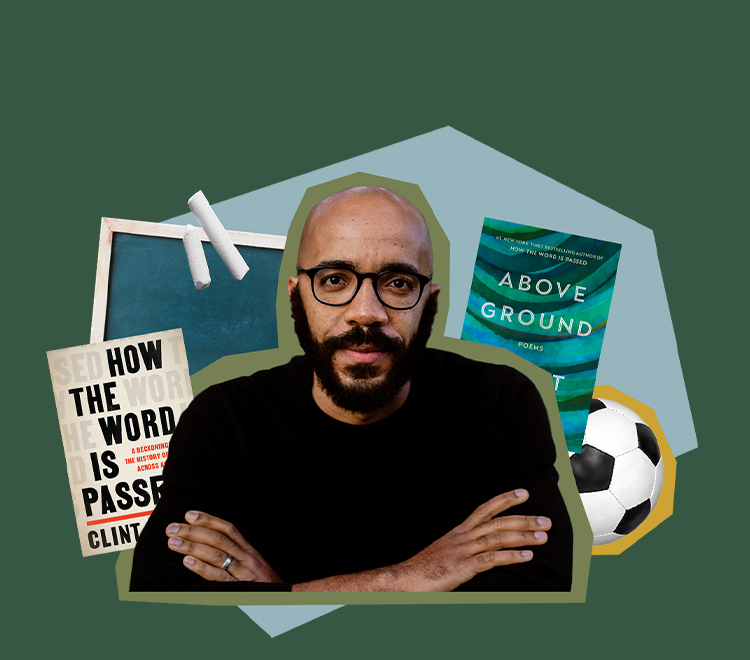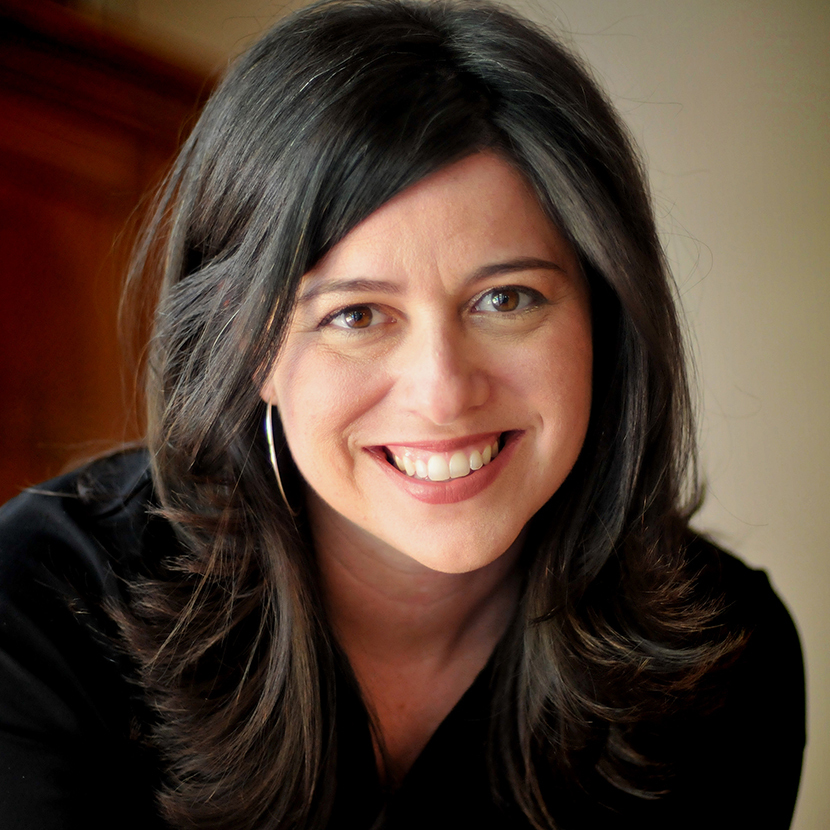Ten years ago, Brené started the Daring Interview series on her blog. It quickly became one of our favorite features. Now, we are relaunching the series and adding in a few new questions, including some from the late James Lipton, host of Inside the Actors Studio, and Smith Magazine’s Six-Word Memoir.
Clint Smith is a writer, a teacher, and a scholar. An artist, an activist, and an avid Arsenal fan. What’s not to love? I first read his work in preparation for Brené’s conversation with him on Unlocking Us. It’s an episode I’ll never forget, as they connected on How the Word Is Passed, Clint’s #1 New York Times Best Seller about how we can be honest about history. As a white woman from the South, my mind was opened wide again as Clint thoughtfully and kindly met individuals across America visiting historic monuments to examine the legacy of slavery in America and how both history and memory continue to shape our lives.
Clint’s latest book, Above Ground, is another eye-opener, a collection of poetry in which he explores our changing world through personal, practical, and profound verse. Clint brings us along with him as he gracefully and artfully looks at the world with a poet’s wonder in pondering parenthood, humanity, and legacy, and I keep going back to his clear and present words again and again.
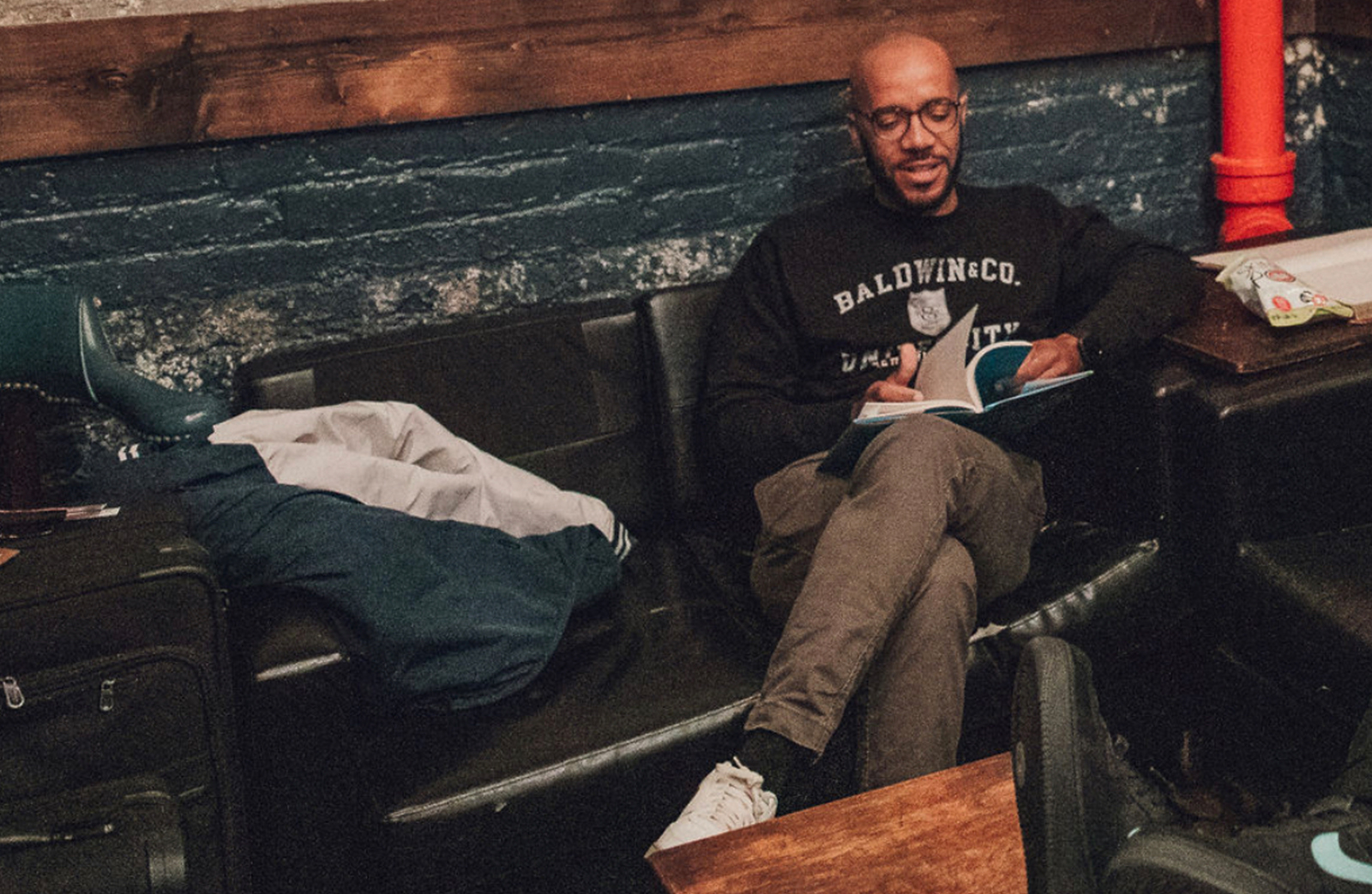
Vulnerability is . . .
Not a threshold you successfully cross but a practice you try your best to engage in every day. It is ongoing and proactive. Especially as a parent of young kids, I try to model what honesty and vulnerability look like, and also try my best to be honest about when I fall short or make a mistake.
What role does vulnerability play in your work?
As a writer, my preoccupation lies in wrestling with questions more than trying to find a specific answer to those questions. I’m interested in complexity, in nuance, in holding multiple truths alongside one another. In my work, part of what vulnerability looks like is presenting myself not as an expert on a given issue but as someone who is curious and trying to fill in the gaps of my own understanding. That way, I think, the reader feels as if they are on a journey alongside you, rather than being preached at.
What’s something that gets in the way of your creativity, and how do you move through it?
Unquestionably my phone. Like so many of us, I can get caught up in the never-ending scroll on a social media app, look up, and realize that I’ve spent 30 minutes doing not much of anything. I realize that when I’m not intentional about how and when I pick up my phone, it can seep into every part of my day. So, when I’m writing, I do my best to put the phone in another part of the room — or in a different room completely — in order to stay focused on what I need to do.
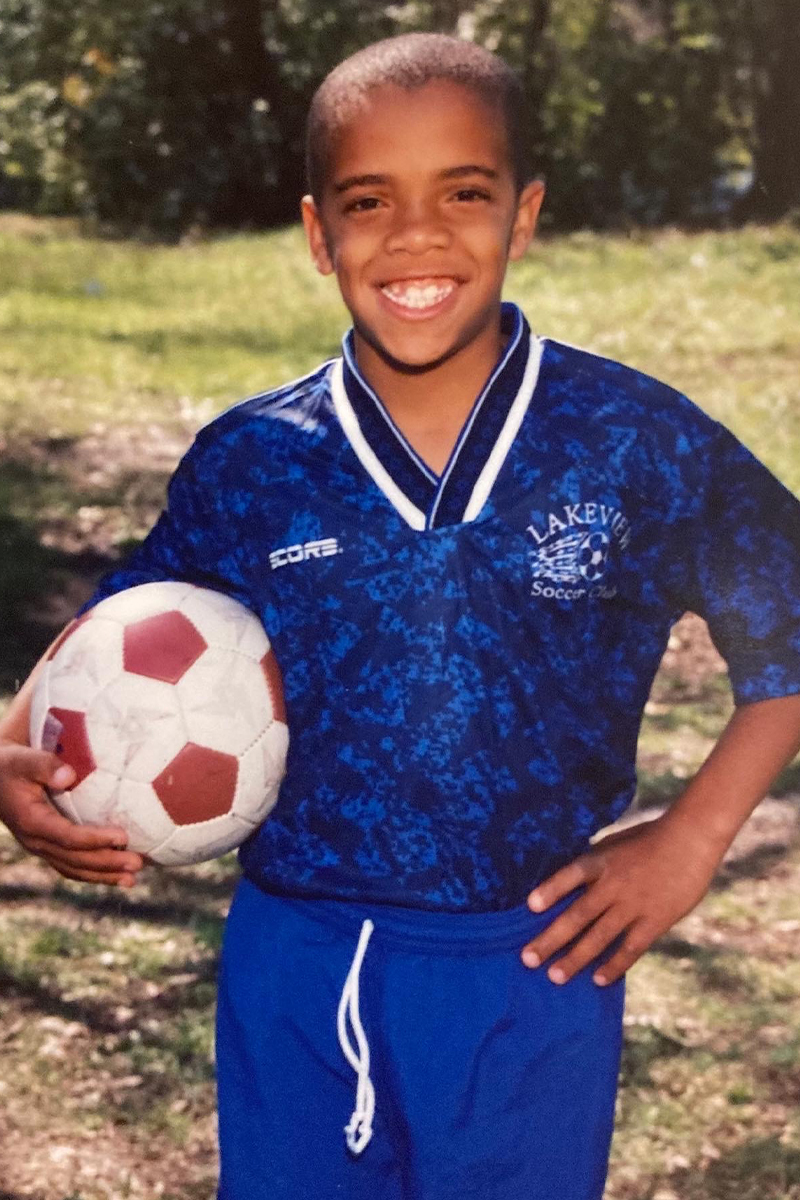
Clint’s love of soccer started early; photography by Sheryl Smith.
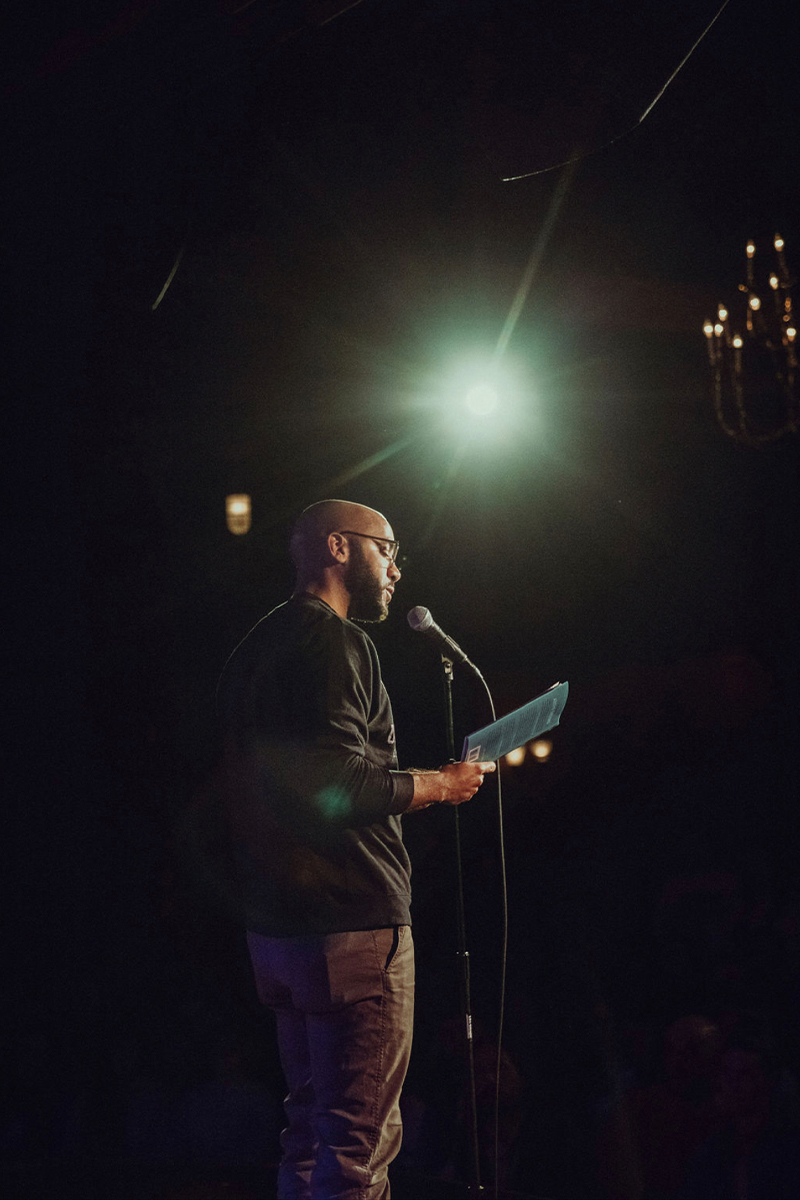
Clint at a poetry reading; photography by Savannah Lauren.
It’s often difficult to share ourselves and our work with the world, given the reflexive criticism and mean-spiritedness that we see in our culture — especially online. What strategies do you use to show up, let yourself be seen, share your work with the world, and deal with criticism?
Criticism is and always has been a part of what it means to be an artist. Obviously, the difference now is that there is a different type of proximity we have to the feelings folks have about the work we put into the world. Oftentimes, that is a really beautiful and meaningful thing. For example, when I see tweets or Instagram posts from teachers who are sharing my work with their students, it means more than I can say. And sure, there will always be those who feel differently about you or your work. I simply try to accept that I have no control over that and do my best to focus on what drew me to the work in the first place: a pursuit of my own curiosities and the space to wrestle with complex questions.
Describe a snapshot of a joyful moment in your life.
The most joyful moments in my life these days are all with my family: playing soccer in the driveway with my son, having a dance party in the kitchen with my daughter, a spontaneous afternoon lunch and movie date with my wife.
Do you have a mantra, manifesto, or favorite quote for living and loving with your whole heart?
“I am part of all that I have met,” by the 19th-century English poet Alfred, Lord Tennyson.
What is your favorite word?
Kaleidoscope.
What is your least-favorite word?
Urinal.
What sound or noise do you love?
I’ll pick two: (1) The sound of my kids laughing. (2) The sounds from the crowd at Emirates Stadium in London after Arsenal scores a goal.
What sound or noise do you hate?
Silverware scratching a plate.
What is your favorite curse word?
Shit.
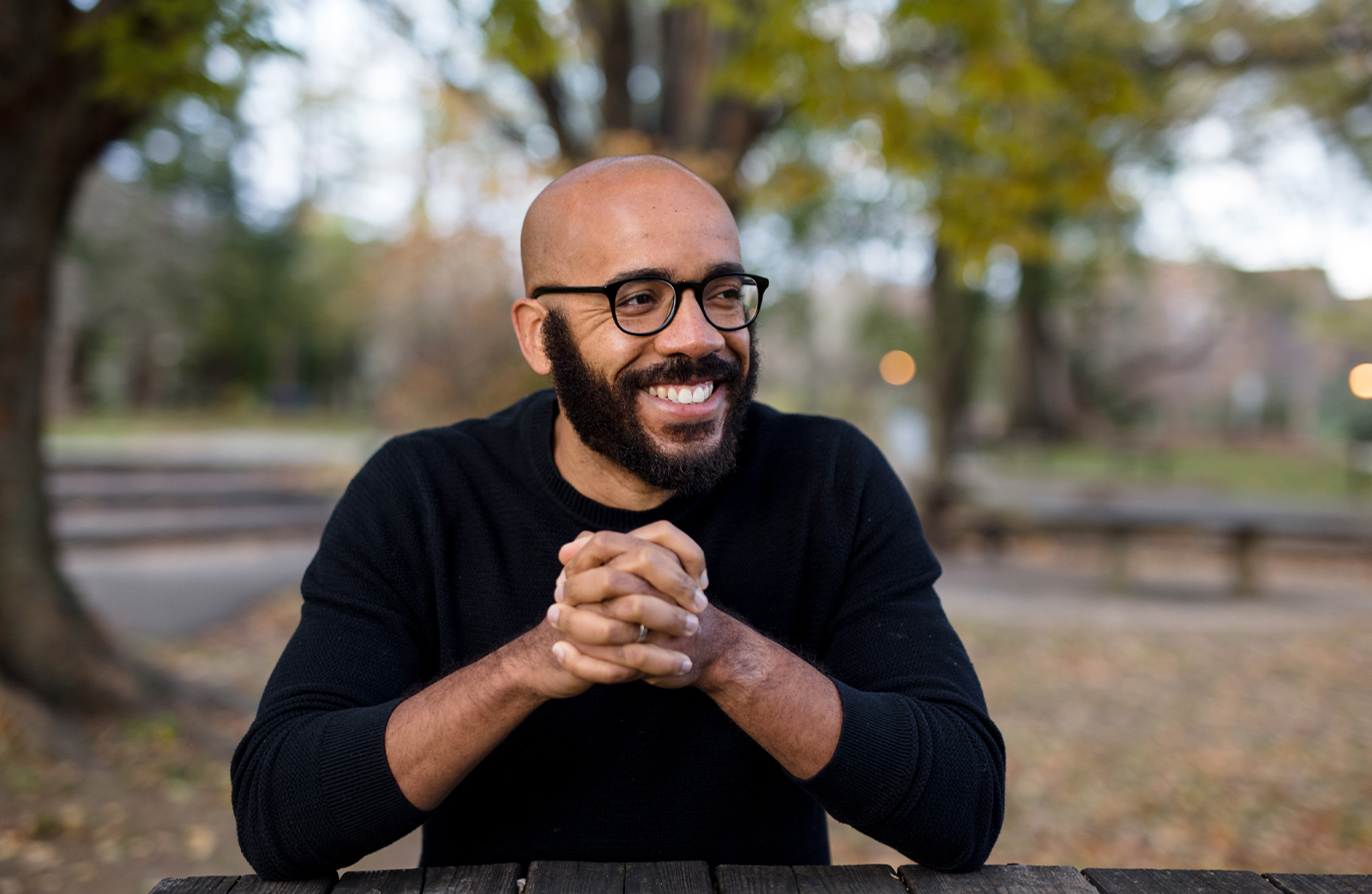
A song/band/type of music you’d risk wreck and injury to turn off when it comes on?
I don’t think I’d risk injury to turn it off, but my music hot take is that the Beatles are wildly overrated [runs in opposite direction].
Favorite show?
The Americans.
Favorite movie?
Of all time is tough, but in the past several years, I would say Moonlight.
What are you grateful for today?
My health.
If you could have anything put on a T-shirt, what would it be?
Basically any quote from Frederick Douglass.
Favorite meal?
Barbecue ribs.
A talent you wish you had?
Painting.
Favorite song/band?
“Candy Rain,” by Soul for Real. My go-to karaoke song.
What’s on your nightstand?
The Wager: A Tale of Shipwreck, Mutiny and Murder, by David Grann; Traveling Black: A Story of Race and Resistance, by Mia Bay; and Promises of Gold, by José Olivarez.
What’s something about you that would surprise us?
You will hear NSYNC in my headphones when I’m mowing the lawn.
Your six-word memoir . . .
“Tried my best to be present.”
Vulnerability is not a threshold you successfully cross but a practice you try your best to engage in every day.
